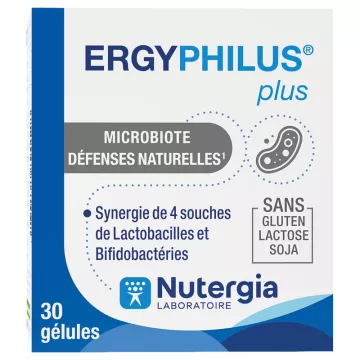
In a world where health challenges are multiplying, boosting your immune defenses has become a priority for many. Strengthening your immune defenses is an essential investment in your overall health. A balanced diet, regular physical activity, quality sleep, stress management and good hygiene are fundamental pillars in supporting your immune system. Remember, a healthy lifestyle is the key to boosting your defenses and living a healthier, more fulfilling life.
The immune system is a complex network of organs, cells and proteins that work together to protect the body against infection and disease. It plays a crucial role in defending against pathogens such as viruses, bacteria and parasites. A strong immune system is essential for maintaining good health and preventing disease.
Signs of a weakened immune system can include an increased frequency of infections, such as colds or urinary tract infections, slow healing of wounds, persistent fatigue, and digestive disorders. It's important to consult a healthcare professional if you suspect your immune system may be weakened.
There are several strategies you can adopt to boost your immune system:
Some supplements, such as vitamin C, vitamin D, zinc and echinacea, can support the immune system, but they should not replace a balanced diet and healthy lifestyle. It is advisable to consult a healthcare professional before starting any supplement, especially in the case of pre-existing medical conditions.
Good personal and household hygiene can reduce exposure to pathogens and support immune defenses. This includes practices such as regular hand-washing, cleaning and disinfecting frequent contact surfaces, and avoiding close contact with sick people.
Absolutely, hydration plays a key role in the optimal functioning of the immune system. Water transports essential nutrients to the cells, facilitates the elimination of toxins and can improve the circulation of immune cells throughout the body. Drinking enough water every day is therefore crucial to maintaining good immune health.
Yes, the intestinal microbiota, i.e. all the micro-organisms living in the gut, has a significant impact on the immune system. A diet rich in fiber, prebiotics and probiotics can promote healthy intestinal flora, which in turn boosts immune defenses. Fermented foods such as yoghurt, kefir and fermented vegetables are good sources of probiotics.
Smoking and excessive alcohol consumption are two factors that can compromise the body's ability to defend itself against infection. Smoking can alter the function of immune cells, while alcohol can affect the production of these cells. To maintain a strong immune system, it is advisable to limit or even avoid these substances.
Vaccines are invaluable tools for strengthening the immune system. By exposing the body to an attenuated or inactivated version of a pathogen, vaccines stimulate the immune response, preparing the system to fight that pathogen effectively in the event of future exposure. Vaccination helps prevent disease and boost immune defenses.
Sleep has a profound impact on the immune system. During sleep, the body produces and releases cytokines, proteins that help fight infection and inflammation. Insufficient or poor-quality sleep can reduce the production of these and other immune cells, making the body more vulnerable to infection. Ensuring sufficient quality sleep is therefore essential for a robust immune system.